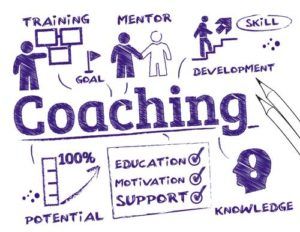Sometimes it seems like you just can’t catch a break. No matter how hard you work or how well you pitch your product, you simply can’t generate a sale. Don’t allow this to frighten or discourage you. Take a look at Thomas Edison’s life and look at his creative process. By doing this you will learn whole new ways you can hone your creative skills and use them to help you generate more income through relationships and sales.
Edison was a really good listener. Part of this was because he was genuinely interested in people and enjoyed hearing their stories. Another reason he was such an astute listener was because he learned that by listening to others, by absorbing the stories they told, it would often trigger an idea.
By listening to the stories prospective clients tell you, pick up on something that will help you quickly create a pitch that works for you.
Edison had fantastic people skills. It didn’t matter if he was with someone one on one, or if he was hanging out with a group of talented individuals, he knew how to connect with all men and women that he met in nearly any setting.
You can start doing the same thing. The next time you’re in a group of  people take a few moments to observe them. At this point, you should assume the role of leader, simply because you do have some knowledge to offer them that they otherwise would not know. Make it a point to draw each person into the group and identify the talents there influence ads. You’re going to find this trait makes you stand out from your associates and allows you to assume a leadership role, putting you into a position to take on bigger accounts. You should be humble and proud of this, do not take this for granted and do not be scared to try this.
people take a few moments to observe them. At this point, you should assume the role of leader, simply because you do have some knowledge to offer them that they otherwise would not know. Make it a point to draw each person into the group and identify the talents there influence ads. You’re going to find this trait makes you stand out from your associates and allows you to assume a leadership role, putting you into a position to take on bigger accounts. You should be humble and proud of this, do not take this for granted and do not be scared to try this.
In addition to acknowledging the talents of your other sales associates, you need to be willing to take a step back and let them shine individually in order to truly listen to what they are saying. Also, you don’t alway need to be the leader, if you have an account you can’t seem to connect to, see if someone else might be better suited for the task. After all you’re supposed to be working as a team.
The next time you meet someone force yourself to keep an open mind, assume nothing. This was a skill Edison used to his advantage. By not making assumptions, your body language won’t be an accidental tell for a potential customer. The Sales Coaching Institute offers training and tips on how to avoid these types of situations.
You might not know it, but since you decided to take on a career as a sales person, it’s likely you have a touch of arrogance. Some people might like many attributes you have! However, many will find it some of your methodologies and ideas offputting. You need to be humble the next time you go out on a sales call, be honest with yourself and take it for what it is. You can not and will not sell everyone so just make sure you respect everyone and you will make it much farther and always continue to sell more creatively.
Happy Selling!
Sales Coaching & Sales Training















